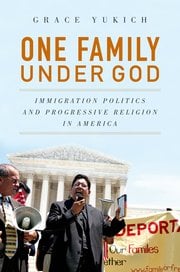My wife is a big fan of contemporary Christian music (CCM), and has listened to it as long as I’ve known her—about 22 years. I’m a fan, too, I suppose, although at a much more “socially acceptable” level than she is. (I just had to say that.) Basically, she introduces me to new songs, albums, and musicians—some of which I wind up enjoying, others not so much.
Our transition from evangelical to Catholic has shed light on the role of music in one’s faith tradition. (It’s also gratefully revealed little that’s distinctively Protestant about most CCM.) For many evangelicals, CCM is a hallmark of their cultural consumption patterns. Sure, there are different tastes and preferences, from the cheesy to the edgy, from the very to the barely (Christian). But one fact seems pretty clear: most performing artists in the CCM world run with evangelicals, so far as I can tell. Very few are Catholic. Why is that?
My best guess at an answer is three-fold. First, CCM’s origins are evangelical, and thus—speaking sociologically—there probably weren’t many “cross-cutting social circles” in its development. That is, when a brand new—or in CCM’s case, a hybrid—cultural form emerges among one group of people, it won’t likely emerge similarly among a different group if social ties between members of the two groups either don’t exist or aren’t strong. So the first part of the answer is rooted in older patterns of sociality; that is, historically evangelicals and Catholics haven’t socially interacted all that much, curbing the likelihood of diffusing cultural forms between them.
This is similar to the reason why country music is a largely Protestant thing as well. If you look at a map of religious affiliation distinctions across the US, Nashville—the CCM and country music capital of the world—is smack in the middle of a very Protestant state (and region). This is probably the primary reason behind the lack of diffusion of CCM.
A second (more interesting) part of my answer/guess is rooted in CCM’s close identification with organized evangelical worship (and hence, paid staff positions). In other words, evangelical performing artists can make a living in evangelical churches—as worship leaders—in a manner that has no parallel (or should I say, no chance) in the Catholic Mass. Just like artists were sponsored by the Church in the Renaissance era, so too are many evangelical singer/songwriters “sponsored” by local congregations. It may not be a great living for most of them—the music industry is not known for lavishing its largesse widely—but it’s a living. In other words, there’s (some) money to be made in the evangelical contemporary music scene, but not so much in the Catholic Church.
When you add to this that there is perhaps 30+ minutes of CCM in some evangelical worship services, and you can plainly see that there’s an economic market for it, both for songs to sing and singers to sing them.
In the Catholic world, it doesn’t appear to work this way. It’s not that contemporary Catholic songwriters don’t exist, or couldn’t be popular. A few enjoy a wide audience, including people like Matt Maher, whose lyrics can be so subtly Catholic that most evangelicals wouldn’t detect the references. (Ironically, he penned “Your Grace is Enough,” a tune popularized by Chris Tomlin). But I’d bet if it wasn’t for crossover appeal (into evangelicalism), homegrown interest might not be sufficient.
Mass, simply put, is scripted far more closely than Protestant worship services, whose worship scripts range quite widely (thus generating far more criteria for church-shopping than in the RC world). There are typically several songs during our Sunday Mass—some of which you could find in mainline Protestant and evangelical churches, but some are unique, too. (I’d be pretty surprised to see “Hail, Holy Queen” in a Baptist church bulletin.) However, I have yet to witness a Mass featuring musicians whose preferred decibel level invites earplugs.
The third reason that contemporary Catholic music is almost an oxymoron, I think, is the more suspicious approach to the meaning of “contemporary” among more-conservative Catholics. While evangelicalism has long been characterized by a strong pragmatic sensibility—one that encourages it to keep in step with contemporary culture in order to evangelize that culture without (it is hoped) being consumed by it—conservative forms of Catholicism are much less pragmatically oriented.
My first lesson in this came at a Sunday Mass I attended years ago with a friend when we were together out of town at an academic conference in Atlanta. (I’ve had the good fortune of attending midweek morning Masses with him in a variety of locations; some of those Mass experiences were impressive, others not so much, but I have learned that my subjective experience of it was not the point. Anyways, I digress.) As we sat in the pew in Atlanta, a modest praise-and-worship band kicked in, and I leaned over to my friend and said something like, “Hey, would you look at that!” He, to my surprise, was unimpressed. After Mass ended, my pal clued me in about how praise-and-worship bands tend to signal something quite different in Catholicism than they do in evangelicalism. They are, to put it simply, more apt than not to be an indicator (but not a cause) of modernist tendencies within the parish. Developing the habit of imitating contemporary culture, in this line of thought, won’t likely stop with just the music. (This is also a criticism I’ve heard some Catholics level against evangelicalism, which they claim is a product of modernity and thus destined—over the long run—to be consumed by it.)
Simple question, long answer. But that’s my best guess at why CCM is and will likely remain a distinctively evangelical thing. Being a newbie, it’s somewhat arrogant of me to claim I understand why Catholics do this or that. So this is only one person’s observation—I’ve probably missed some other reasons. Have I?










